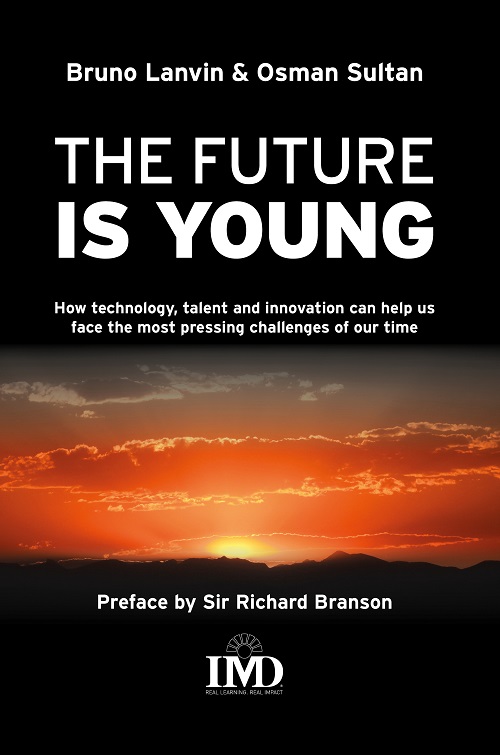
No organisation or industry can think of having a future without incorporating data, talent, and learning in its operations. The future is still young and these three have a role to play in shaping it.
In today’s world, uncertainty has become the norm—COVID was a largely unexpected shock; the heightening of international tensions and the return of inflation have given jolts to many. In the meanwhile, global threats (inequalities, climate change) have not diminished. Decision-makers (public and private) as well as ordinary citizens are now changing their consumption and saving behaviours according to parameters that are seen as utterly volatile. It is hence more challenging (and more necessary) to be future-ready today than it ever was before. Recent trends indicate that future-readiness will largely rely on three major currencies: data, talent, and learning.
Data is not the new oil. It is the new air. We breathe, generate, and consume data through every step we take, and every interaction we participate in. Our societies, our organisations (private and public) are undergoing accelerating processes of digital transformation, in which value is created and shared in ways that were inconceivable just a few decades ago.
Talent is what allows us to create value out of data. More than 60 zeta bytes (ie, 60 times 1021 bytes) of data was produced over the last 12 months alone. How can we make sense of all of this, and how do we translate data into the strategic and operational information that will allow our organisations, businesses, and governments to be more efficient and improve our lives? For this, we need talents, ie, the women and men who will guide our steps into the future.
Learning is what permits talent to grow. It starts with education (formal and informal) and continues all along one’s life, through constant up-skilling and re-skilling. But learning is not just for individuals: our institutions, our organisations, even our products can also learn and grow, and help us make tomorrow a better world.
Let us explore each of those three core components of future-readiness in turn.
Data is not the new oil; it is the new air
A decade ago, digital transformation was still seen in many organisations as the sum of all the digital initiatives one could take (from the automation of payroll and procurement documentation to setting up firewalls and other cyber security measures). Today, no industry can imagine its future outside of a true re-alignment of its resources, markets and capacities around digital constraints and opportunities. Digital transformation is now clearly a matter of death of survival for any activity one can think of.
This means that if data cannot circulate freely through economic and social tissues, economic activities, employment, and all types of interactions (from education to social interplay) will be hampered, and in some cases, impossible. This is one of the reasons why current tendencies to splinter the internet (creating a ‘splinternet’) are potentially so damaging to our economies and societies. Nationalistic tendencies and geo-strategic considerations have recently given more flesh to that possibility. The possibility of ‘closed internets’ is now openly mentioned in countries like China, Iran, and Russia.
Other governments are also considering tighter policies to better manage (or control) data flows, as they feel that some of their traditional levers are being eroded by new tools such as block chains, crypto-currencies, or exceedingly powerful large tech companies such as Meta and Google. Recent steps taken by China towards its own champions (such as Alibaba) maybe a harbinger of stronger governmental moves towards more data control.
Talent is what allows us to create value out of data
One of the reasons why governments may fear the continuous rise of data and its growing vital importance for all types of activities is that they sense that the talent required to create value out of such data is both scarce and difficult to manage and control. This is a phenomenon that the Global Talent Competitiveness Index Report of 2020 (GTCI 2020) explored to some length. Under the title ‘Artificial Intelligence and Talent Competitiveness’ the report underlined that both sides of the AI/talent equation (supply and demand) deserve concurrent attention in order to: (1) build the skills necessary to ensure optimal human/machine cooperation and (2) create the conditions to maximise the social value and long-term sustainability of such cooperation. It is also critically important that AI be designed within universally accepted guiding principles respecting the rule of law, fundamental human rights, inclusion, and diversity.

The same report also made it clear that the emergence of AI in the workplace requires a massive re-skilling of the workforce. At all levels of qualifications, workers will need training on adaptability, social intelligence, communication, and problem-solving. Life-long learning will increasingly play a key role in developing skills to foster empathy, creativity, imagination, judgement, and leadership, which are likely to continue to be human-only activities.
Re-skilling will also be necessary to develop fusion skills in order to allow humans and machines to interact in hybrid activities effectively and efficiently.
Learning is what permits talent to grow
One of the challenges facing all education systems is that they are expected to train students for jobs that cannot even be defined at this point in time.
There are only two ways to address this paradox. One is to build curricula around ‘generic skills’ such as problem solving or inductive reasoning, while teaching coding techniques (as opposed to coding languages) all through the formal education system, from kindergarten to university. This is what countries like Singapore have practised for some time already, with spectacular results in international education rankings such as PISA.
The other way is to consider that education is a lifelong process. Technological innovations, new ways of working and interacting, and new social and economic norms require a constant adaptation from workers. Their employers have a critical role to play in ensuring their constant up-skilling and re-skilling. This is not just an issue of productivity and competitiveness. It is also part of good management. The future of work will rely largely on free agent, gig workers (working part time for multiple employers), and highly mobile talents (across geographies and across sectors). New generations (X, Y, Z, Alpha) seek meaningful occupations, ie, jobs through which they can contribute positively to society, and jobs that offer them possibilities to grow, innovate, and enjoy a healthy work-life balance.
So, data, talent, and learning will mesh with each other to become the spine of a new breed of social and economic organisms. Much effort will be needed from all of us (private and public organisations, cities, nations, and individual citizens) to fully grasp the potential benefits and pitfalls of such a massive change. On all those fronts, we are only seeing the beginning of what tomorrow will bring. The future is still very young indeed, and we all have a role to play in shaping it to our liking.
Log In or become an AIMA member to read more articles
